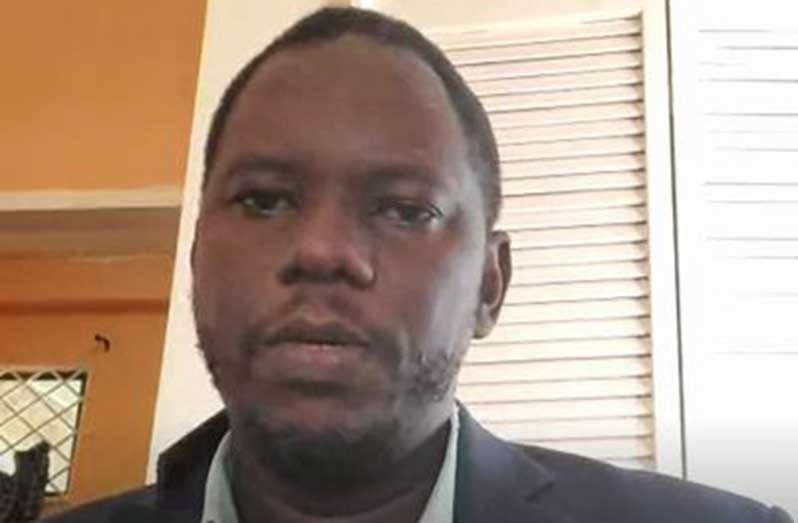–COVID-19 survivor says, as he recounts battle with the dreaded disease
WHEN Orin Boyce was putting together the design for the Infectious Diseases Hospital at Liliendaal, Greater Georgetown, he had no intentions of physically testing its practicality.
However, a year later, he was admitted to the hospital’s Intensive Care Unit (ICU), having been diagnosed with the novel coronavirus.
In an interview with local journalist, Nakasia Logan, Boyce recalled that a couple weeks ago, he began to feel unwell, and embarked on his usual wellness regimen of fever grass and other ‘bush’ teas. But after a week with no relief, Boyce said he realised something was not right.
“I couldn’t breathe properly,” the 43-year-old man recalled.
It was then that the engineer, accompanied by his wife, visited a private hospital for medical assistance.
“They put me on oxygen, and within half an hour, I got so weak. When they took me to the x-ray room, I felt like my whole back fall out; I couldn’t get up,” Boyce said.
Soon after, his COVID-19 test would come back positive, and he was immediately taken to the Georgetown Public Hospital Corporation (GPHC), where additional tests were done, and he was administered saline.
Boyce said that the doctors’ attempt to do a basic blood test sent shivers down his spine, as his blood began to clot. “Frightening; my blood start to clot so fast,” Boyce recalled.
He was then transported to the Liliendaal facility, where he was admitted.
“When I was admitted, I could not breathe; I was on oxygen,” Boyce said.
Reflecting on his time as a patient there, Boyce said he was heartened to see how tirelessly the nurses and doctors worked to ensure patients pull through.
The doctors and nurses, he said, were always prompt in checking in on the patients, and ensuring that their vitals were in order.
“They worked around-the-clock,” Boyce noted.
Asked about the treatment plan being administered at the hospital, the engineer said that treatments are customised to suit each individual patient; that every person is given medications and meals, based on the nature and seriousness of their condition.
But as more and more persons continue to lose their lives to the virus, Boyce said that he is beyond thankful to be alive, and to have been discharged from the hospital.
“It gives me a second chance at life; my faith. I get to realise that life is nothing. When I entered [the hospital], I said, ‘I am not dying in here,’” Boyce related.
He has now come to realise that even with the unwavering efforts of the public health team, the nature of COVID-19 makes it difficult for persons to benefit from the kind of comfort that comes from human contact.
“Some days I actually break down and crying, ‘cause is you alone. Persons who dying are giving up,” Boyce surmised.
He admitted that even though he was following rigid COVID-19 prevention protocols during the early stages of the virus, he “kind of lapsed”.
“Earlier in COVID, every time I came home, I would change my clothes before coming inside the house,” Boyce told the National Communications Network (NCN) reporter.
Looking back, Boyce said that he is happy that he made efforts to take at least one dose of the coronavirus vaccine.
“This thing is not a myth; it is serious,” he emphasised.
Even though he has been discharged, Boyce will still have to be on medication for the next 69 days.
“The damage done to my lungs; the pneumonia. I got to build back; got to do some breathing exercises and so,” he said.
Boyce said, too, that an important part of his new recovery lifestyle includes a balanced diet and taking his Vitamin Cs.



.jpg)








